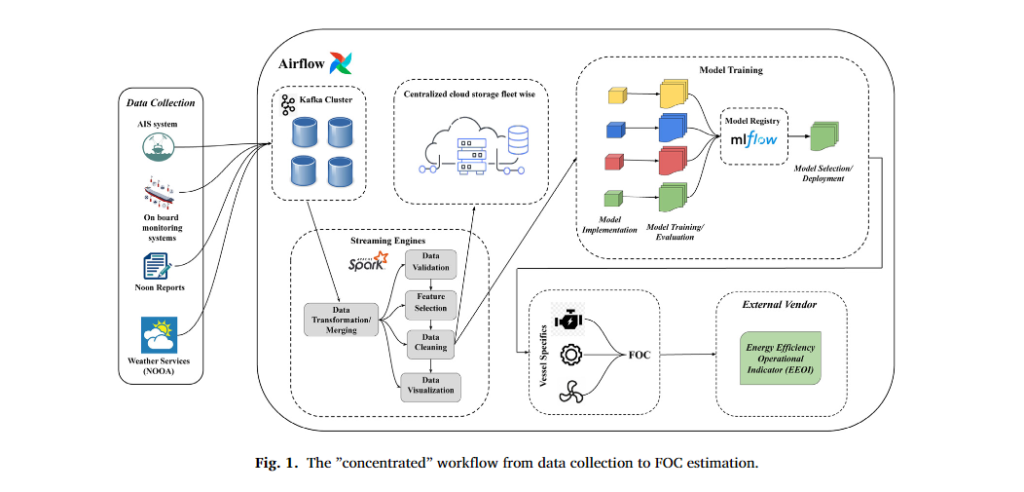Dimitrios Kaklis a, Iraklis Varlamis c, George Giannakopoulos b, Takis J. Varelas d, Constantine D. Spyropoulos b
a) Department of Informatics and Telematics, Harokopio University of Athens, NCSR Demokritos, Danaos Shipping Co., Omirou 9, Tavros, Athens, 17778, Greece
b) Institute of Informatics & Telecommunications, NCSR Demokritos, Patr. Gregoriou E and 27 Neapoleos Str, Agia Paraskevi, Athens, GR-15341, Greece
c) Department of Informatics and Telematics, Harokopio University of Athens, Patr. Gregoriou E and 27 Neapoleos Str, Agia Paraskevi, Athens, Omirou 9 Tavros, GR
17778, Greece
d) Danaos Shipping Co., Akti Kondyli 14, Piraeus, GR-18450, Greece
9 May 2023, Version of Record 9 May 2023.
Abstract
Sustainability and environmental compliance in ship operations is a prominent research topic as the waterborne sector is obliged to adopt ”green” mitigation strategies towards a low emissions operational blueprint. Fuel-Oil-Consumption (FOC) estimation, constitutes one of the key components in maritime transport information systems for efficiency and environmental compliance. This paper deals with FOC estimation in a more novel way than methods proposed in literature, by utilizing a reduced-sized feature set, which allows predicting vessel’s Main-Engine rotational speed (RPM). Furthermore, this work aims to place the deployment of such models in the broader context of a cutting-edge information system, to improve efficiency and regulatory adherence. Specifically, we integrate B-Splines in the context of two Deep Learning architectures and compare their performance against state-of-the-art regression techniques. Finally, we estimate FOC by combining velocity measurements and the predicted RPM with vessel-specific characteristics and illustrate the performance of our estimators against actual FOC data.
Link to ScienceDirect


